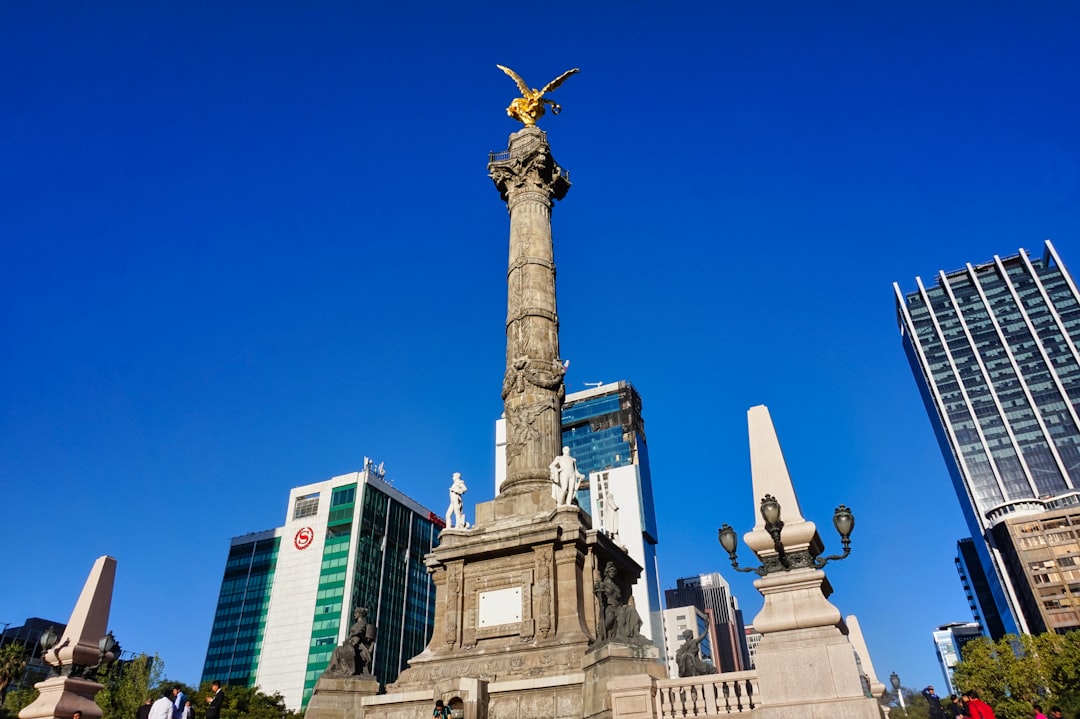Nomad Essentials The Ultimate Guide to Apps Books and Podcasts

Introduction
The nomadic lifestyle blends work, travel and personal growth into a single, fluid experience. Whether you are a seasoned digital nomad hopping between continents or a newcomer testing the waters, the right tools can turn uncertainty into confidence. This guide brings together the most useful apps, the most inspiring books and the most insightful podcasts that have become staples for the global‑working community. Each recommendation is accompanied by a brief why it matters, a snapshot of its core features and tips on getting the most out of it. By the end of this article you will have a curated toolkit that helps you stay productive, manage money, stay healthy, connect with locals and keep the wanderlust alive.
Apps That Power the Nomadic Life
Productivity and Project Management
- Notion – A flexible all‑in‑one workspace that lets you build databases, task boards, knowledge bases and habit trackers. Nomads love its offline mode and the ability to duplicate a personal dashboard across devices.
- Trello – Visual Kanban boards are perfect for breaking down projects into bite‑size cards. Use Power‑Ups such as Calendar and Google Drive for a smoother workflow.
- Todoist – Simple yet powerful task manager with natural language input. Its “Today” view helps you focus on the most urgent items while the Karma points keep motivation high.
Tips: Set up a master “Nomad Hub” in Notion that includes travel itineraries, expense sheets, client contracts and a daily journal. Sync the same board to Todoist for quick task capture on the go.
Communication and Collaboration
- Slack – Most remote teams rely on Slack for real‑time messaging. Its integration library includes tools for file sharing, time tracking and translation.
- Zoom – The go‑to platform for video calls. Look for the “Backgrounds” feature to hide your surroundings when you need privacy.
- Microsoft Teams – Offers robust document collaboration, especially useful if you work within a Microsoft‑centric organization.
Tips: Create a “Nomad Channel” in Slack where you share Wi‑Fi hotspots, coworking spaces and local tips with fellow travelers. Use the “Pin” feature to keep important messages accessible.
Travel Planning and Navigation
- Google Maps – Beyond navigation, it stores offline maps, public transit schedules and local business reviews.
- Rome2rio – Shows door‑to‑door transport options, from flights to ferries to rideshares. Great for visualizing complex itineraries.
- Skyscanner – Flexible flight search that lets you explore cheapest dates and nearby airports.
Tips: Download country‑level offline maps in Google Maps before you land. Use Rome2rio to compare cost‑effective alternatives such as night buses versus budget airlines.
Accommodation and Co‑working
- Airbnb – Offers a spectrum of stays from private rooms to entire homes. Filter for “Instant Book” to avoid lengthy host communication.
- Booking.com – Strong for last‑minute hotel reservations and provides free cancellation on many listings.
- Workfrom – Curated list of coworking spaces, cafés with reliable Wi‑Fi and community events.
Tips: When booking a stay, look for listings that mention a dedicated workspace or a quiet corner. Use Workfrom’s “Community” tab to meet other nomads in the same city.
Finance and Currency Management
- Wise – Low‑cost international transfers and multi‑currency accounts. The borderless debit card works in most countries without hidden fees.
- Revolut – Offers budgeting tools, crypto trading and travel insurance add‑ons.
- XE Currency – Real‑time exchange rates and price alerts that help you decide the best moment to convert money.
Tips: Keep a small cash reserve in the local currency for places that do not accept cards. Set up automatic alerts in XE for currency swings that could affect your budget.
Health, Fitness and Well‑being
- Headspace – Guided meditations designed for busy travelers. Short “5‑minute” sessions are perfect for airport layovers.
- MyFitnessPal – Calorie tracker that works offline and can sync with local food databases.
- Fitbit – Wearable that monitors steps, heart rate and sleep patterns. Its “Adventure” challenges keep you moving while exploring new cities.
Tips: Use Headspace’s “Travel” pack to calm pre‑flight nerves. Log meals in MyFitnessPal even when you’re eating street food; the app’s “Quick Add” feature makes entry painless.
Safety and Connectivity
- ExpressVPN – Secure internet connection on public Wi‑Fi and unlock geo‑restricted content.
- Signal – End‑to‑end encrypted messaging app that works even with low bandwidth.
- Life360 – Family locator that shares real‑time location with trusted contacts.
Tips: Enable the “Kill Switch” in ExpressVPN to prevent data leaks if the connection drops. Store a backup of your important documents (passport scan, insurance) in an encrypted cloud folder.
Entertainment and Learning
- Spotify – Music streaming with offline download. Create “Travel Vibes” playlists for each continent.
- Audible – Audiobook platform that turns long bus rides into reading sessions.
- Duolingo – Bite‑size language lessons that fit into any schedule.
Tips: Use the “Crossfade” setting in Spotify to keep the mood flowing while moving between locations. Pair Audible with a language learning app to practice listening comprehension in the target language.
Books Every Nomad Should Read
Foundations of Remote Work
- “Remote: Office Not Required” by Jason Fried & David Heinemeier Hansson – Explores the philosophy behind remote work, debunking myths about productivity and collaboration.
- “The 4‑Hour Workweek” by Timothy Ferriss – Classic guide that introduces the concept of lifestyle design, automation and mini‑retirements.
Why they matter: Both books challenge the traditional office mindset and provide practical steps for turning work into a location‑independent venture.
Travel Narrative and Inspiration
- “Vagabonding” by Rolf Potts – A manifesto for long‑term travel that emphasizes freedom over itineraries.
- “The Art of Travel” by Alain de Botton – Philosophical reflections on why we travel and how to experience places more deeply.
Why they matter: These titles fuel the wanderlust that drives many nomads while offering a thoughtful lens for interpreting new cultures.
Personal Growth and Mindset
- “Atomic Habits” by James Clear – Shows how tiny changes compound into lasting results, a crucial concept when routines are constantly shifting.
- “The Power of Now” by Eckhart Tolle – Teaches presence and mindfulness, useful for managing the stress of perpetual motion.
Why they matter: Building sustainable habits and a calm mind helps maintain productivity and emotional balance on the road.
Entrepreneurship and Business
- “The Lean Startup” by Eric Ries – Introduces validated learning, rapid prototyping and pivoting—essential skills for launching a business from anywhere.
- “Start Something That Matters” by Blake Mycoskie – Story of a socially driven brand that began as a small project and grew globally.
Why they matter: Nomads often juggle side hustles; these books provide frameworks for testing ideas without a fixed office.
Financial Independence
- “Your Money or Your Life” by Vicki Robin & Joe Dominguez – Guides readers toward conscious spending, saving and achieving financial freedom.
- “The Simple Path to Wealth” by JL Collins – Straightforward advice on investing, especially in low‑cost index funds.
Why they matter: Managing money across currencies and tax jurisdictions is a core challenge; a solid financial foundation makes the nomadic lifestyle viable long‑term.
Remote Team Leadership
- “Team of Teams” by General Stanley McChrystal – Describes how decentralized teams can operate with shared purpose and agility.
- “No Rules Rules” by Reed Hastings & Erin Meyer – Inside look at Netflix’s culture of freedom and responsibility, relevant for building high‑performing remote teams.
Why they matter: As your career progresses, you may lead distributed teams; these books outline the leadership mindset needed for success without a physical office.
Practical Guides
- “The Rough Guide to First‑Time Digital Nomads” (self‑published anthology) – Collection of real‑world stories, budget templates and visa checklists.
- “How to Travel the World on $50 a Day” by Matt Kepnes – Budget travel strategies that translate well to long‑term nomad life.
Why they matter: Concrete tools, spreadsheets and checklists help transform abstract ideas into actionable steps.
Podcasts That Keep Nomads Informed and Inspired
Remote Work and Productivity
- “The Remote Show” – Interviews with remote‑first founders, tips on building virtual cultures and deep dives into productivity tools.
- “Beyond the To‑Do List” – Host Erik Fisher talks with productivity experts about habits, focus and work‑life integration.
How to use: Subscribe and listen during commutes or while waiting in cafés. Take notes on any tool or habit mentioned and test it in your own workflow.
Travel Stories and Culture
- “Zero To Travel” – Host Jason Moore explores different travel styles, visa processes and ways to fund a location‑independent life.
- “The Travelogue” – Narrative storytelling that highlights lesser‑known destinations and the people who call them home.
How to use: Play episodes while planning new itineraries; the detailed country insights often surface hidden gems not found in guidebooks.
Entrepreneurship and Business
- “How I Built This” – Guy Raz interviews founders about the origins of their companies, focusing on resilience and pivot moments.
- “Smart Passive Income” – Pat Flynn shares strategies for building online income streams, from affiliate marketing to digital products.
How to use: Use the lessons to refine your own side‑hustle or to evaluate whether a business idea is worth pursuing while traveling.
Personal Development and Mindfulness
- “The Tim Ferriss Show” – Long‑form conversations with high‑performers, covering habits, tools and mental models.
- “On Being” – Explores deeper questions of purpose, belonging and how to live a meaningful life—relevant when constantly adapting to new environments.
How to use: Allocate a weekly “reflection hour” where you listen to a personal‑development episode and journal insights that apply to your nomadic journey.
Finance and Investing
- “The BiggerPockets Money Podcast” – Discusses budgeting, investing and tax strategies for freelancers and digital nomads.
- “Afford Anything” – Host Paula Pant breaks down financial independence concepts and interviews experts on wealth building.
How to use: Pair episodes with your expense tracking routine; implement one new budgeting tip each month and monitor the impact.
Language Learning
- “Coffee Break Languages” – Short lessons in Spanish, French, Italian and more, designed for learners on the move.
- “Talk Like a Pirate” (for fun) – While not strictly a language podcast, it demonstrates how immersion and humor can accelerate language acquisition.
How to use: Listen during short breaks or while preparing meals; repeat phrases aloud to improve pronunciation.
How to Build Your Personal Nomad Toolkit
- Identify Your Core Needs – List the tasks you perform daily: client communication, project tracking, travel booking, budgeting, health monitoring.
- Match Apps to Tasks – Choose one app per category to avoid redundancy. For example, if you already use Notion for knowledge management, you may not need a separate note‑taking app.
- Create a Central Hub – Use a Notion page or a Google Sheet as a dashboard that links to all your apps, passwords and important documents. Keep it updated weekly.
- Curate a Learning Queue – Combine books, podcasts and online courses into a “Nomad Learning List.” Prioritize by relevance: start with a remote‑work book if you are just beginning, then add travel narratives as you plan your next move.
- Set Boundaries for Consumption – Allocate specific time blocks for listening to podcasts or reading. This prevents information overload and preserves mental space for actual work.
- Test and Iterate – After two weeks of using a new tool, evaluate its impact. Does it save time? Does it create friction? Replace it if it does not add clear value.
- Leverage Community Feedback – Join nomad‑focused Slack workspaces or Facebook groups. Ask for app alternatives, book recommendations or podcast episodes that address current challenges.
Sample Weekly Routine Using the Toolkit
Monday
- Morning: 30‑minute meditation with Headspace.
- 9 am‑12 pm: Deep work on client project tracked in Todoist.
- Lunch break: Listen to “Zero To Travel” episode about visa hacks.
- 1 pm‑3 pm: Check finances in Wise and update expense sheet in Notion.
- Evening: Quick language practice with Duolingo.
Tuesday
- Morning: Review weekly goals in Notion.
- 10 am‑12 pm: Video call with team on Zoom, record meeting notes in Notion.
- Afternoon: Research accommodation on Airbnb, save favorite listings in a Notion database.
- Commute (bus): Audiobook from Audible – “The Lean Startup.”
Wednesday
- Morning: Short run tracked by Fitbit, followed by a protein‑rich breakfast logged in MyFitnessPal.
- 9 am‑11 am: Write blog post for personal brand, draft in Notion.
- Lunch: Podcast “Smart Passive Income” while eating street food.
- 2 pm‑5 pm: Local coworking day booked via Workfrom, Wi‑Fi secured with ExpressVPN.
Thursday
- Morning: Review habit streaks in Habitica (optional).
- 10 am‑12 pm: Client deliverable review, send files via Slack.
- Afternoon: Explore city using Google Maps offline, test public transport with Rome2rio.
- Evening: Read chapter from “Atomic Habits,” take notes in Notion.
Friday
- Morning: Weekly finance audit – reconcile Wise transfers, set alerts in XE.
- 11 am‑1 pm: Team retrospective on Microsoft Teams, discuss upcoming travel schedule.
- Lunch: “The Tim Ferriss Show” episode on productivity tools.
- Afternoon: Free time for exploring local culture, capture photos and write reflections in Notion journal.
Weekend
- Saturday: Long hike, track steps with Fitbit, meditate at sunrise.
- Sunday: Plan next week’s itinerary, update accommodation database, download new offline maps, and enjoy a relaxed reading session from “Vagabonding.”
Frequently Asked Questions
What if I lose internet access for a few days?
- Prioritize apps with offline capabilities: Notion (offline mode), Google Maps (offline maps), MyFitnessPal (quick add), and Spotify (downloaded playlists).
- Store a local backup of essential documents on an encrypted USB drive.
How do I handle taxes while moving between countries?
- Use a dedicated accounting app like QuickBooks Self‑Employed or Wave to track income and expenses by jurisdiction.
- Consult a tax professional experienced with expatriate or digital nomad tax law.
- Keep receipts and invoices in a cloud folder (e.g., Google Drive) organized by year and country.
Is it safe to rely on a single VPN provider?
- Choose a VPN with a strict no‑logs policy, a kill switch and multiple server locations.
- As a backup, have a secondary VPN subscription or use the built‑in VPN feature in some browsers (e.g., Opera).
Can I maintain a stable internet connection in remote areas?
- Invest in a portable 4G LTE hotspot device and purchase a local SIM card in each country.
- Keep a list of coworking spaces and cafés with reliable Wi‑Fi in your destination database.
How many books should I aim to read each month?
- Set realistic targets based on your schedule; one to two books per month is a common goal for nomads.
- Mix fiction, non‑fiction and audio formats to keep the habit flexible.
Final Thoughts
The nomadic lifestyle thrives on adaptability, curiosity and the right set of tools. By curating a selection of apps that cover productivity, travel, finance, health and safety, you eliminate the friction that often comes with constant movement. Pair those digital tools with a library of books that inspire, educate and challenge you, and complement the reading with podcasts that keep you updated while you’re on the move.
Remember that the most powerful part of any toolkit is the habit of reviewing and refining it. As your routes change, as new technologies emerge and as your personal goals evolve, revisit this guide, swap out what no longer serves you and experiment with fresh options. The ultimate freedom of the nomadic life comes not only from the ability to pick up and go, but also from the confidence that you have a reliable, well‑tested system that supports you wherever the road leads.
Safe travels, productive work, and happy learning.
Random Posts

Finding the Perfect Café for Remote Work and Boosted Productivity
Discover how to turn a café into your ideal remote-work hub, learn to scout, test, and settle into spots with reliable WiFi, comfy seating, and just the right buzz to spark creativity and keep productivity high.
1 month ago

Live Anywhere How to Choose the Perfect Digital Nomad Base
Learn how to select the perfect digital nomad base with reliable internet, low cost, simple visa rules, safety and a supportive community, so you stay productive while enjoying true location freedom
1 month ago

Where to Work Remotely in Latin America
Discover the best Latin American cities for remote work, offering affordable living, fast internet, coworking hubs, visa tips, safety and vibrant culture, all in one concise guide for digital nomads.
2 months ago

Top Regional Hotspots for Remote Workers in Africa
Discover Africa’s top remote work havens, from Marrakech’s lively souks to Nairobi’s tech hubs, each evaluated on fast internet, coworking spaces, affordable living, easy visas, safety and vibrant community vibes.
1 month ago

Beach and Mountain Nomad Gems Across Latin America
Discover Latin America’s top beach and mountain spots for digital nomads, from Rio’s vibrant coworking hubs and affordable seaside living to hidden mountain retreats that blend fast WiFi, community, and adventure
3 weeks ago
Latest Posts

Essential Software Every Remote Professional Should Use
Master remote work with essential tools: instant messaging like Slack, high definition video calls such as Zoom, and asynchronous voice apps. Streamline communication, stay connected and boost productivity.
1 day ago

Mastering Remote Work Productivity for Digital Nomads and Freelancers
Learn proven habits, tools, and tactics that help digital nomads and freelancers stay focused, deliver quality work, and maintain a sustainable lifestyle while traveling the world.
1 day ago

Tech‑Friendly European Towns Perfect for Remote Living
Discover Europe’s best small towns where fast internet, affordable living and vibrant tech communities let you work remotely while soaking up historic charm, lakeside views or mountain air.
1 day ago